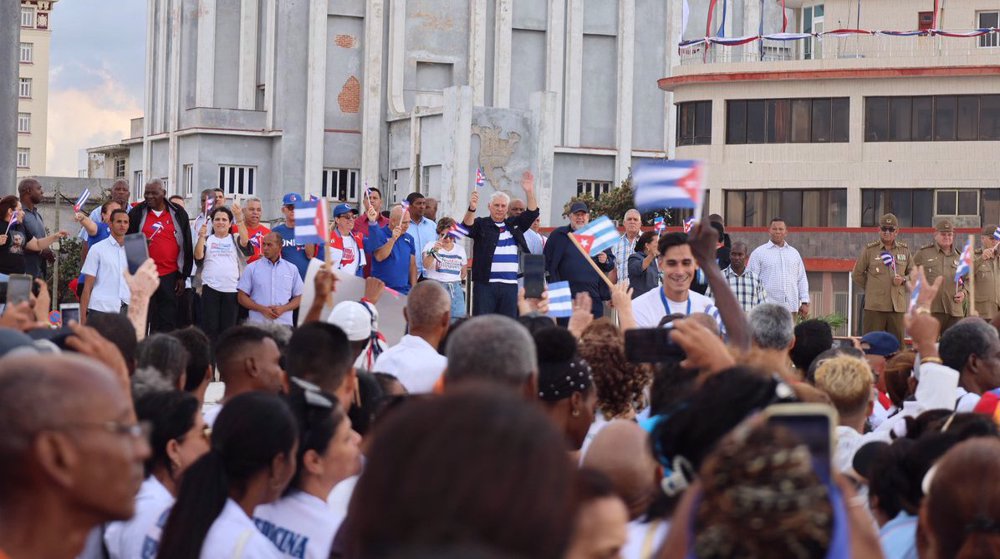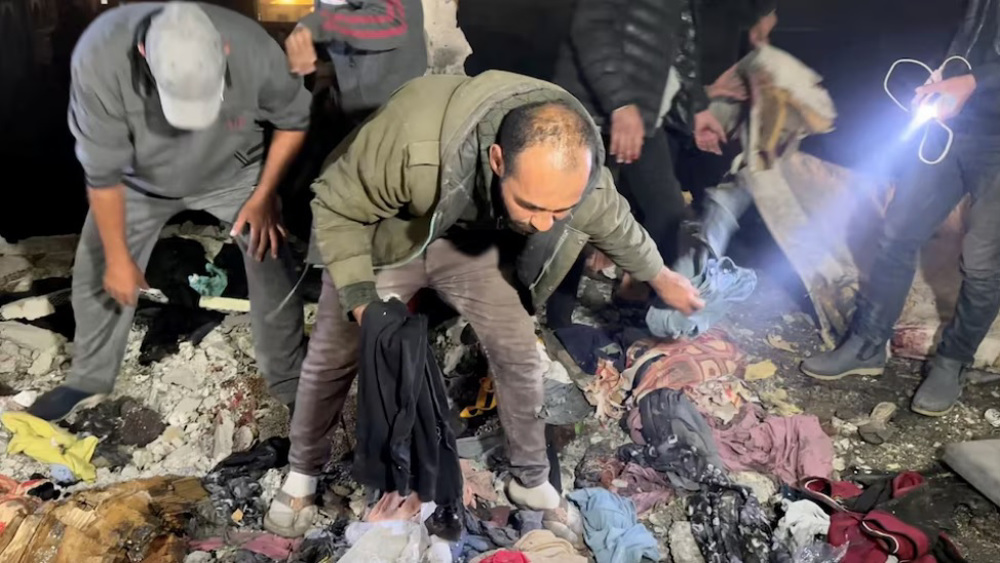French Guiana hit by strike as protests paralyze territory
French Guiana faced a nationwide strike Monday over crime and economic difficulties, amid protests that have paralyzed the French territory in South America, halted flights and a rocket launch and prompted a US travel warning.
As tensions mounted, Prime Minister Bernard Cazeneuve announced plans to send a high-level ministerial mission before the week's end aimed at signing a pact addressing anger over high crime, the cost of living and the quality of health care and other social services. Protests have already blocked roads to neighboring Brazil and Suriname, and shuttered many businesses and schools.
The French government has already sent an emergency mission to try to quell tensions in the territory of a quarter-million people before Monday's general strike by some 27 unions, expected to hit public services across Guiana. However, the Collective of 500 Brothers, the group largely behind the protests, has been demanding that the French government send a minister to negotiate with them.
The unrest is a reminder of the deep economic, social and racial divides between France's mainland and former colonies from the Caribbean to the South Pacific that remain French today. Some territories use the euro currency, and they all depend heavily on imported goods and policy decisions made in Paris.
Candidates for France's two-round presidential election starting next month have urged aid or intervention in Guiana, as the concerns of overseas voters suddenly entered the spotlight in the race after having been largely ignored.
The government minister for overseas holdings called for calm Monday, and said on RTL radio that the government mission has made progress on demands from fishermen and farmers. However, she said "conditions for dialogue are not met" for her to visit Guiana herself as demonstrators demand.
The minister, Ericka Bareigts, stood at the French prime minister's side as he announced his plans to send the ministerial mission. But he stressed that solutions cannot be found "amid disorder." The "ambitious pact" includes aid to the agriculture sector, the construction of a penitentiary, a new court to meet demands and security needs in the restive territory.

French Guiana senator Antoine Karam said on BFM-TV that the population has been ignored despite grave problems, such as 50 percent unemployment among young people and 30 percent of the population lacking drinking water and electricity in their homes.
"We're not treated in the same way as the mainland French," he said, despite French Guiana being the site of Europe's Ariane rocket launches — and the window for French technology.
"Today, that window has been broken," Karam said.
A visit of Segolene Royal, the French minister of ecology, to the territory on March 17 was cut short after masked demonstrators from the collective stormed into a regional conference on biodiversity she was attending in the department's capital city, Cayenne.
Protests disrupted the planned launch last week of an Ariane 5 rocket from the space center in Kourou carrying a South Korean satellite and a Brazilian satellite.
Air France canceled all flights Sunday and Monday because of the strike. Flights from regional airlines to Cayenne on Friday were canceled.
The US State Department issued a travel warning because of the potential for the protests to turn violent. It said the US Embassy in Paramaribo, Suriname, is able to provide only very limited consular services in French Guiana and said citizens should avoid travel to French Guiana.
(Source: AP)
VIDEO | Iran-Syria: For Resistance
Qassam Brigades claims killing 3 Israeli troops in northern Gaza
More alive than ever: Sayyed Hassan Nasrallah's legacy grows stronger in martyrdom
Occupation of Syria’s highest peak Mount Hermon part of ‘Greater Israel’ project
Iran: Syrian people will decide their future without foreign interference
IRGC says Iran’s power exceeds borders, warns enemies to adjust themselves
Dozens detained, several wounded in Israeli raids in West Bank
‘Ethnic cleansing’: Hamas blasts Israeli attacks on Gaza hospital amid intl. silence















 This makes it easy to access the Press TV website
This makes it easy to access the Press TV website